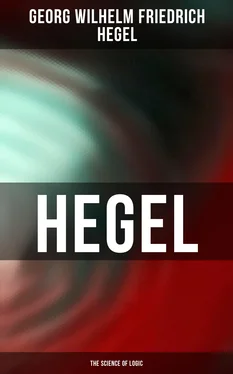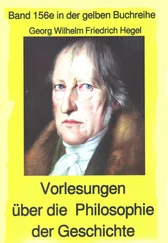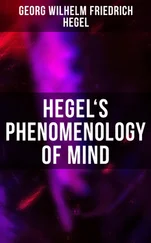The object of the old metaphysical theology was to see how far unassisted reason could go in the knowledge of God. Certainly a reason-derived knowledge of God is the highest problem of philosophy. The earliest teachings of religion are figurate conceptions of God. These conceptions, as the Creed arranges them, are imparted to us in youth. They are the doctrines of our religion, and in so far as the individual rests his faith on these doctrines and feels them to be the truth, he has all he needs as a Christian. Such is faith: and the science of this faith is Theology. But until Theology is something more than a bare enumeration and compilation of these doctrines ab extra, it has no right to the title of science. Even the method so much in vogue at present—the purely historical mode of treatment—which for example reports what has been said by this or the other Father of the Church—does not invest theology with a scientific character. To get that, we must go on to comprehend the facts by thought,—which is the business of philosophy. Genuine theology is thus at the same time a real philosophy of religion, as it was, we may add, in the Middle Ages.
And now let us examine this rational theology more narrowly. It was a science which approached God not by reason but by understanding, and, in its mode of thought, employed the terms without any sense of their mutual limitations and connexions. The notion of God formed the subject of discussion; and yet the criterion of our knowledge was derived from such an extraneous source as the materialised conception of God. Now thought must be free in its movements. It is no doubt to be remembered, that the result of independent thought harmonises with the import of the Christian religion:—for the Christian religion is a revelation of reason. But such a harmony surpassed the efforts of rational theology. It proposed to define the figurate conception of God in terms of thought; but it resulted in a notion of God which was what we may call the abstract of positivity or reality, to the exclusion of all negation. God was accordingly defined to be the most real of all beings. Any one can see however that this most real of beings, in which negation forms no part, is the very opposite of what it ought to be and of what understanding supposes it to be. Instead of being rich and full above all measure, it is so narrowly conceived that it is, on the contrary, extremely poor and altogether empty. It is with reason that the heart craves a concrete body of truth; but without definite feature, that is, without negation, contained in the notion, there can only be an abstraction. When the notion of God is apprehended only as that of the abstract or most real being, God is, as it were, relegated to another world beyond: and to speak of a knowledge of him would be meaningless. Where there is no definite quality, knowledge is impossible. Mere light is mere darkness.
The second problem of rational theology was to prove the existence of God. Now, in this matter, the main point to be noted is that demonstration, as the understanding employs it, means the dependence of one truth on another. In such proofs we have a pre-supposition—something firm and fast, from which something else follows; we exhibit the dependence of some truth from an assumed starting-point. Hence, if this mode of demonstration is applied to the existence of God, it can only mean that the being of God is to depend on other terms, which will then constitute the ground of his being. It is at once evident that this will lead I to some mistake: for God must be simply and solely the I ground of everything, and in so far not dependent upon anything else. And a perception of this danger has in modern times led some to say that God's existence is not capable of proof, but must be immediately or intuitively apprehended. Reason, however, and even sound common sense give demonstration a meaning quite different from that of the understanding. The demonstration of reason no doubt starts from something which is not God. But, as it advances, it does not leave the starting-point a mere unexplained fact, which is what it was. On the contrary it exhibits that point as derivative and called into being, and then God is seen to be primary, truly immediate and self-subsisting, with the means of derivation wrapt up and absorbed in himself. Those who say: 'Consider Nature, and Nature will-lead you to God; you will find an absolute final cause: 'do not mean that God is something derivative: they mean that it is we who proceed to God himself from another; and in this way God, though the consequence, is also the absolute' ground of the initial step. The relation of the two things is reversed; and what came as a consequence, being shown to be an antecedent, the original antecedent is reduced to a consequence. This is always the way, moreover, whenever reason demonstrates.
If in the light of the present discussion we cast one glance more on the metaphysical method as a whole, we find its main characteristic was to make abstract identity its principle and to try to apprehend the objects of reason by the abstract and finite categories of the understanding. But this infinite of the understanding, this pure essence, is still finite: it has excluded all the variety of particular things, which thus limit and deny it. Instead of winning a concrete, this metaphysic stuck fast on an abstract, identity. Its good point was the perception that thought alone constitutes the essence of all that is. It derived its materials from earlier philosophers, particularly the Schoolmen. In speculative philosophy the understanding undoubtedly forms a stage, but not a stage at which we should keep for ever standing. Plato is no metaphysician of this imperfect type, still less Aristotle, although the contrary is generally believed.
Конец ознакомительного фрагмента.
Текст предоставлен ООО «ЛитРес».
Прочитайте эту книгу целиком, купив полную легальную версию на ЛитРес.
Безопасно оплатить книгу можно банковской картой Visa, MasterCard, Maestro, со счета мобильного телефона, с платежного терминала, в салоне МТС или Связной, через PayPal, WebMoney, Яндекс.Деньги, QIWI Кошелек, бонусными картами или другим удобным Вам способом.












